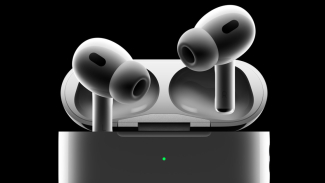Forbidden Fruits for Diabetes Patient: From Banana to Grapes
- Times of India
VIVA – As quoted from the World Health Organization, diabetes is a chronic, metabolic disease characterized by elevated levels of blood glucose (or blood sugar), which leads over time to serious damage to the heart, blood vessels, eyes, kidneys and nerves.
The most common is diabetes type 2, a chronic condition in which the pancreas doesn’t produce enough insulin. The main role of insulin is to regulate blood sugar, the main type of sugar found in the blood.
Uncontrolled blood sugar levels can cause a series of problems, so people with diabetes are encouraged to look for alternative ways of lowering high blood sugar. Diet acts can avoid the high blood sugar levels by slowing the rise in which food is broken down into blood glucose.
In reducing the high sugar levels that can cause diabetes, it can be through the consumption of food or fruit. Specifically, there are certain fruits that can trigger a drastic increase in blood sugar.
This is because the fruit can be broken down more quickly into glucose or sugar.
Buah-buahan untuk pasien diabetes
- everydayhealth
Foods that break down more quickly into glucose rank higher on the glycemic index. The Glycemic Index is a scoring system for foods that contain carbohydrates. This number shows how quickly each food affects your blood sugar levels when the food is eaten.
As quoted via Diabetes.co.uk, foods high on the glycemic index are broken down very quickly causing blood sugar levels to rise rapidly.
Fruits that can be prevented by diabetic patients are canned fruits, dried fruits, processed fruits, fruit jams and jelly, also sweetened food products such as bananas, oranges, grapes, raisins, dates and pears.
According to Diabetes.co.uk, diabetics should have fruit with a lower glycemic index such as berries, prunes, kiwi and grapefruit.
A quote by hopkinsmedicine.org, Dr. Rita Kalyani of the Johns Hopkins Division of Endocrinology, Diabetes and Metabolism said that if you have type 1 diabetes, you'll need to start taking insulin upon diagnosis.
People with type 2 diabetes may initially be able to manage the disease with weight loss alone, but most patients take pills and some take insulin. You should work with your doctor to make sure you're on track with your treatment goals.





















